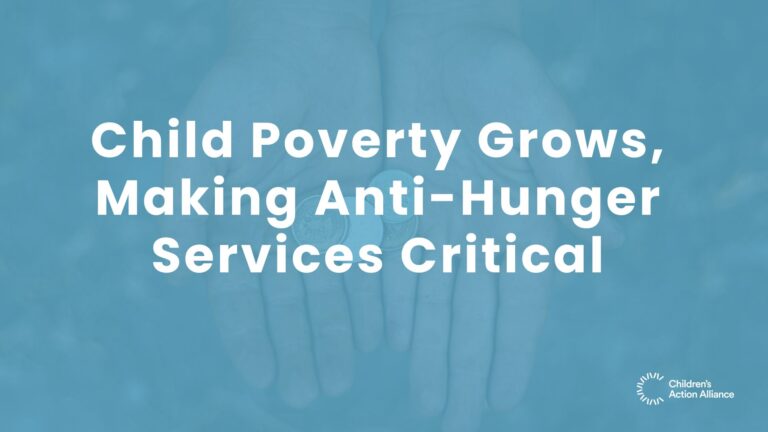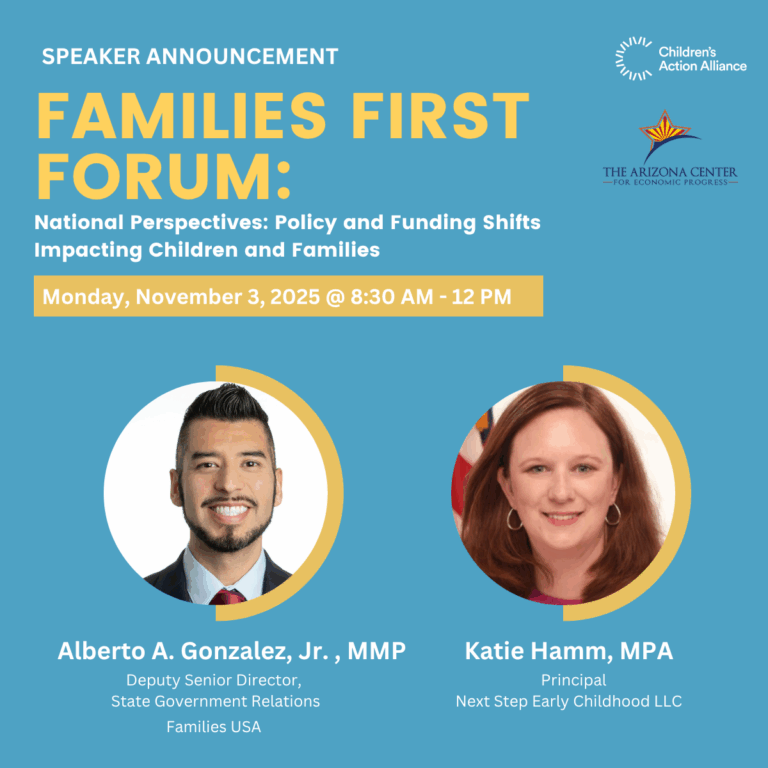
15,000 Arizona kids gained health coverage during the pandemic – but we’ve still got work to do.
Health insurance is a long-term investment for children. It helps families get the care they need, when they need it, without fear of expensive health bills. And it helps kids learn, grow, and play at their best.
Racial and ethnic disparities in coverage rates persist, but a new report by Georgetown University’s Center for Children and Families show some bright spots. In 2019 nearly 1 in 4 American Indian / Alaska Native children were uninsured. In 2021, that figure dropped to fewer than 1 in 5. But the uninsured rate for American Indian / Alaska Native kids in our state is still significantly higher than that of all Arizona children (8.5%).
While the rate of uninsured children in Arizona is improving, we still have a higher rate of uninsured children than the national average (5.4%). Data from the Census Bureau’s American Community Survey show that though pandemic-era policies provided 15,000 more children with health coverage than in 2019, Arizona still ranks 48th in the nation for the rate of children’s health coverage.
It doesn’t have to be this way. Here are a few of our suggestions for Arizona lawmakers heading into the 2023 legislative session:
- Maximize Medicaid and CHIP (AHCCCS and KidsCare). As costs go up for all things, more families across the income spectrum are making difficult choices about how to trim their budgets. Arizona’s CHIP program (KidsCare) has some of the most stringent income requirements in the nation. Arizona lawmakers should expand income-based eligibility for KidsCare to better reflect our financial realities.
- Streamline enrollment process. Parents shouldn’t have to jump through hoops to keep their kids covered. Removing the KidsCare wait period and reducing the paperwork burden will help more families get and stay insured.
- Cover non-citizen children and pregnant people. In Arizona, lawful permanent residents (green card holders) must wait five years before qualifying for AHCCCS or KidsCare coverage. That leaves few options for families who are trying to make a new start in our state. Waiving this requirement for children and people who are pregnant is a simple, affordable, and kind way to treat new arrivals.
Real full report here.
Read media article here.



